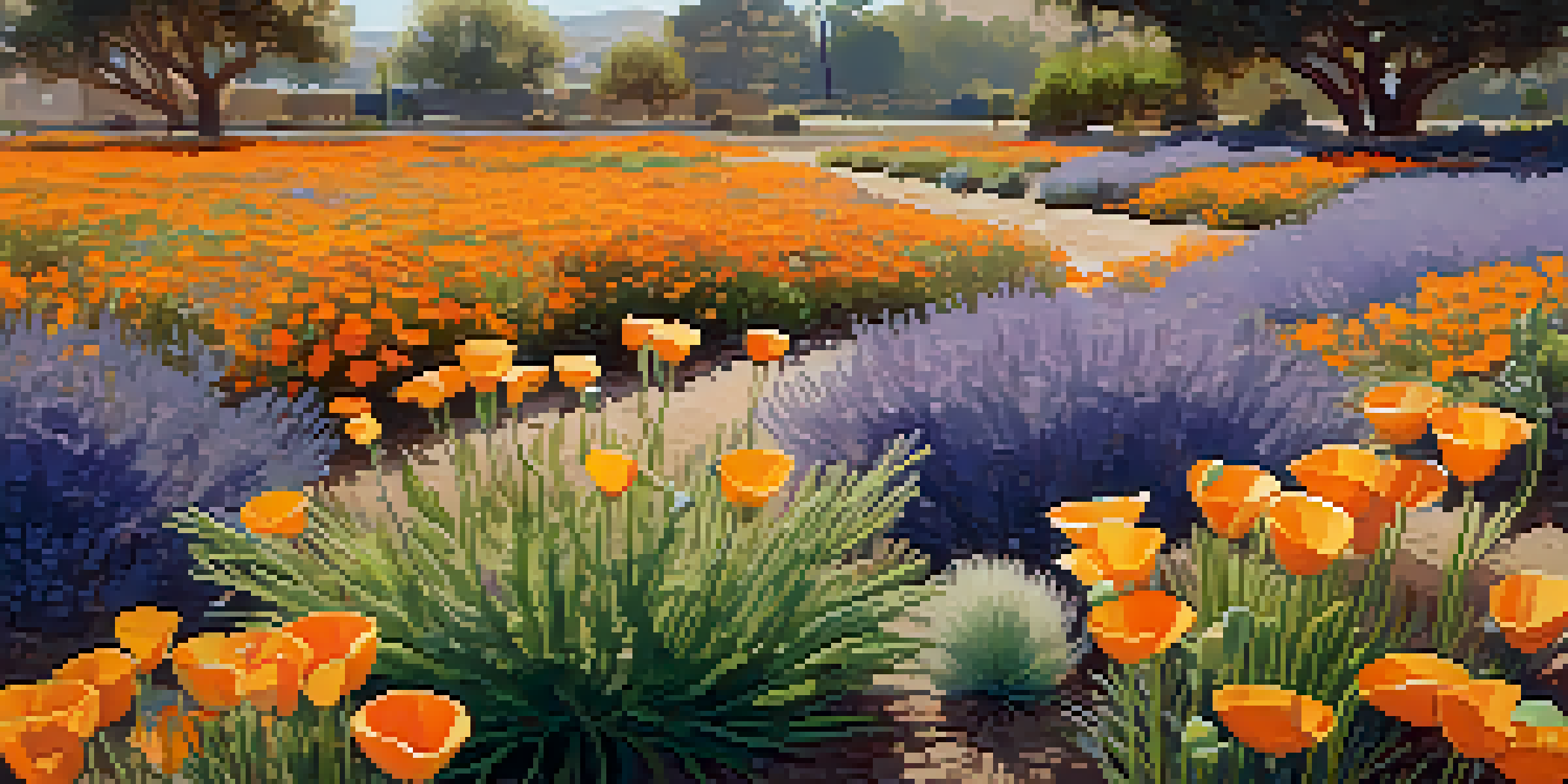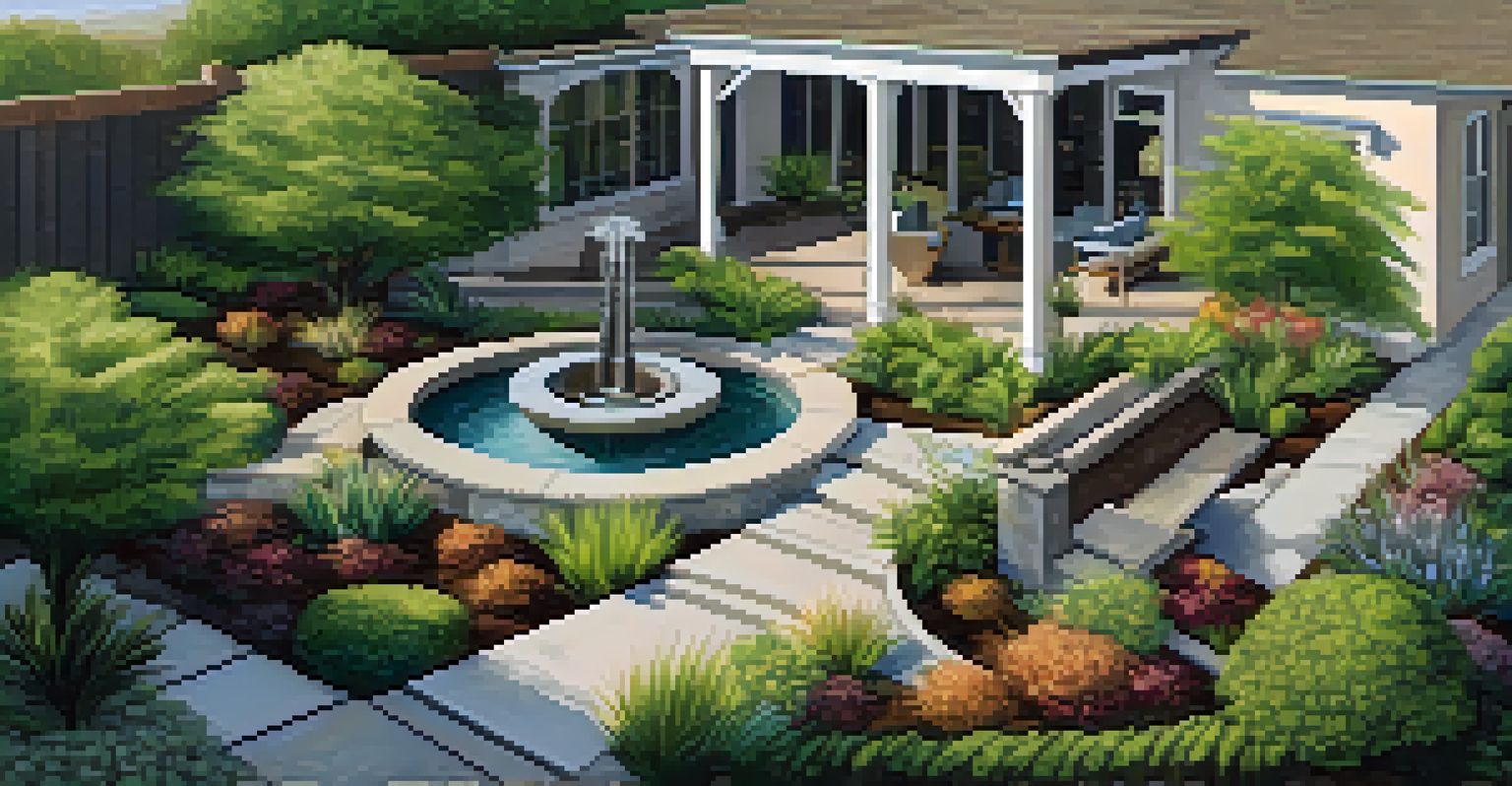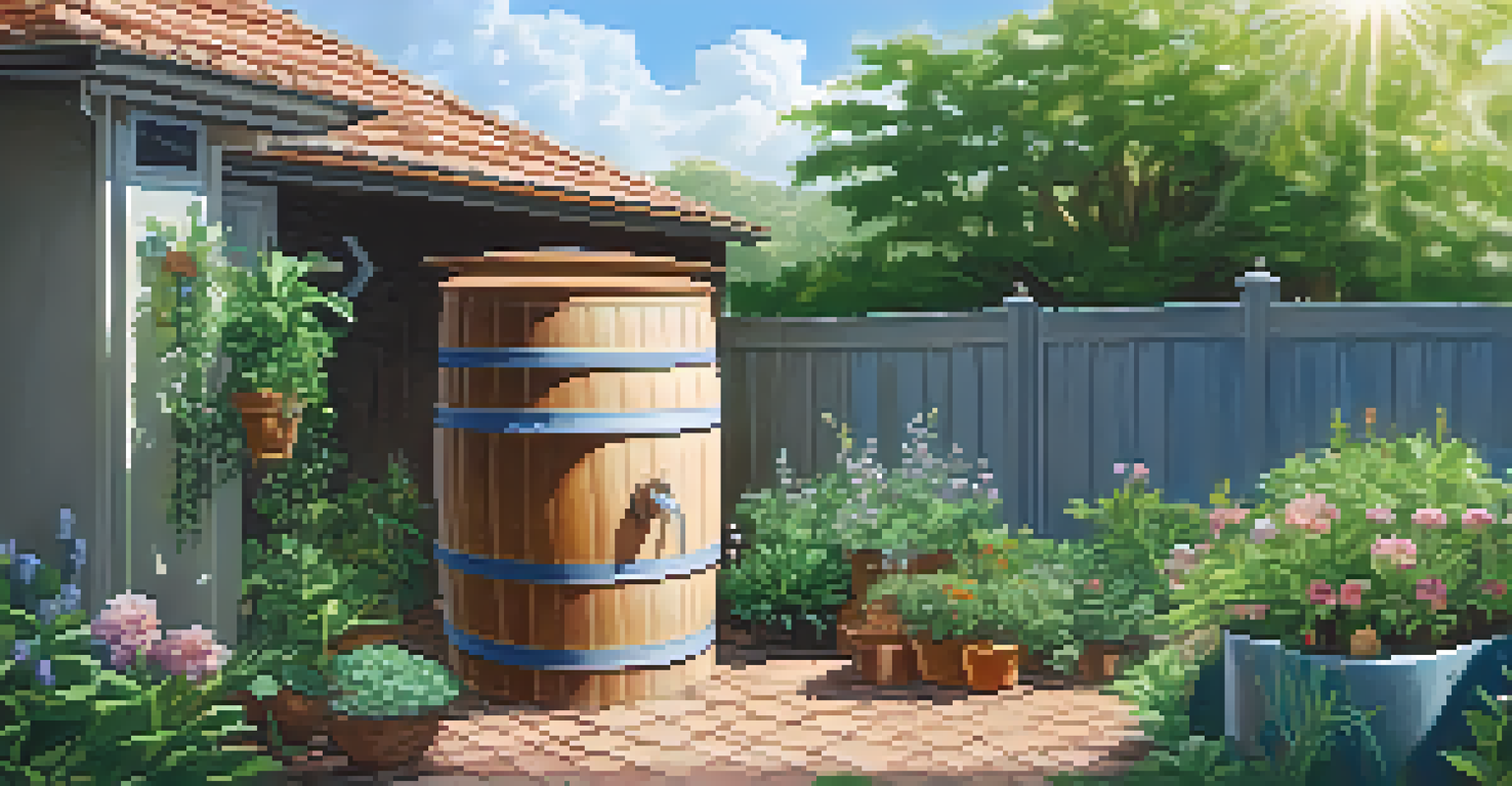Water Conservation Techniques for Sacramento Gardens

Understanding Sacramento's Water Needs and Challenges
Sacramento's Mediterranean climate presents unique challenges for gardeners. With hot, dry summers and mild, wet winters, water conservation becomes essential. Understanding these seasonal shifts helps gardeners plan effectively for their plants' needs.
The best time to plant a tree was twenty years ago. The second best time is now.
Additionally, the region often faces drought conditions, making it crucial to adopt water-saving methods. The local government encourages residents to participate in conservation efforts, which can lead to reduced water bills and healthier gardens.
By acknowledging these factors, Sacramento gardeners can make informed decisions about their water usage, ensuring that they maintain beautiful landscapes without overburdening the local water supply.
Choosing Drought-Resistant Plants for Your Garden
One of the most effective ways to conserve water is by selecting drought-resistant plants. These species are adapted to dry conditions and require significantly less water than traditional garden plants. Native plants, like California poppies and lavender, not only thrive in Sacramento's climate but also support local wildlife.

Incorporating succulents and other xeriscape plants can also enhance your garden's appearance while minimizing water usage. Their unique shapes and colors add visual interest, making your garden both sustainable and attractive.
Embrace Drought-Resistant Plants
Choosing native and drought-resistant plants helps conserve water while creating a beautiful garden.
By focusing on drought-resistant plants, you can create a vibrant garden that flourishes with minimal water, showcasing the beauty of nature while being responsible stewards of the environment.
Implementing Efficient Irrigation Systems
Upgrading to an efficient irrigation system can dramatically reduce water waste in your garden. Drip irrigation, for example, delivers water directly to the plant's roots, ensuring that each drop counts. This method not only conserves water but also promotes healthier plant growth.
We won't have a society if we destroy the environment.
Additionally, installing a timer on your irrigation system can help regulate watering schedules, preventing overwatering. Smart irrigation systems that adjust based on weather conditions are also becoming increasingly popular among gardeners.
By investing in these technologies, you're not just saving water; you're also saving time and effort while maintaining a thriving garden.
Mulching: The Unsung Hero of Water Conservation
Mulching is a simple yet effective technique that can significantly reduce water evaporation from the soil. By applying a layer of organic material like wood chips or straw, you can keep the soil moist and cool. This practice not only conserves water but also suppresses weeds, which compete for moisture.
In addition to conserving water, mulch adds nutrients to the soil as it breaks down, promoting healthier plant growth. It’s a win-win situation that benefits both your garden and the environment.
Utilize Efficient Irrigation Systems
Implementing drip irrigation and smart watering systems significantly reduces water waste in your garden.
Incorporating mulch into your gardening routine is a small change that can have a big impact on water conservation efforts.
Rainwater Harvesting: Capturing Nature's Gift
Rainwater harvesting is an excellent way to collect and use natural rainfall for your garden. Installing rain barrels to collect runoff from your roof can provide a sustainable source of water. This practice not only conserves municipal water but also reduces stormwater runoff, which can lead to erosion.
Using harvested rainwater for irrigation ensures that your plants receive fresh, untreated water. This is particularly beneficial for vegetable gardens, where chemical residues from tap water can be a concern.
By embracing rainwater harvesting, you're making a proactive commitment to sustainability while ensuring that your garden thrives, even during dry spells.
Soil Health: The Foundation of Water Conservation
Healthy soil is fundamental for effective water conservation. Soil that is rich in organic matter can retain moisture far better than depleted soil. By regularly incorporating compost and organic materials, you improve soil structure, allowing it to hold more water.
Additionally, practicing crop rotation and cover cropping can enhance soil health, further reducing the need for irrigation. These practices encourage microbial activity, which plays a crucial role in maintaining soil moisture.
Engage in Community Conservation
Participating in local gardening programs and community efforts enhances water conservation and supports sustainable practices.
Investing time in nurturing your soil leads to long-term water conservation and a more resilient garden.
Creating a Water-Wise Garden Design
A well-thought-out garden design can help in maximizing water efficiency. Grouping plants with similar water needs together not only simplifies irrigation but also minimizes water waste. This practice, known as hydrozoning, allows for more precise watering and care.
Incorporating hardscapes, such as pathways and patios, can also reduce the area that needs watering. These surfaces can help direct rainwater to plants, providing additional moisture when it counts.

By designing your garden with water conservation in mind, you create a beautiful landscape that thrives with minimal effort.
Community Efforts and Resources for Conservation
Engaging with local community efforts can amplify your water conservation impact. Sacramento offers various programs and resources, such as workshops and grants, to help residents adopt eco-friendly gardening practices. Connecting with local gardening groups can also provide valuable insights and support.
Additionally, participating in community gardens allows you to collaborate with others who share your passion for water conservation. Sharing resources and knowledge can lead to innovative solutions that benefit everyone.
By joining forces with your community, you contribute to a collective effort that enhances sustainability and promotes the health of Sacramento's environment.